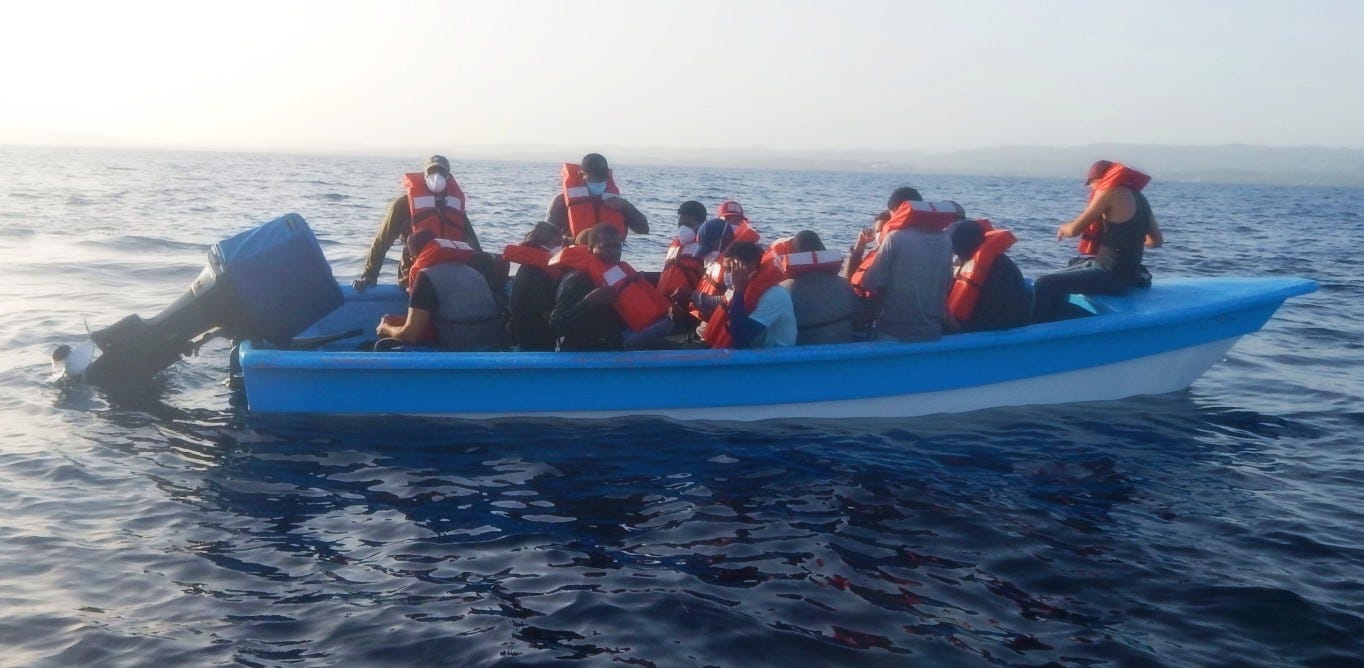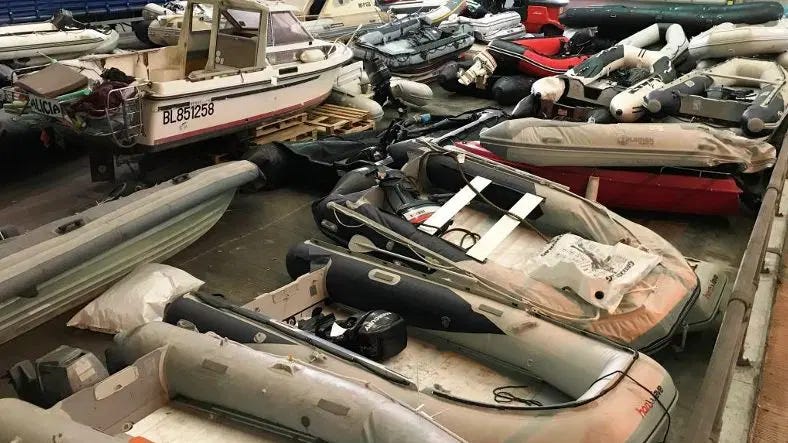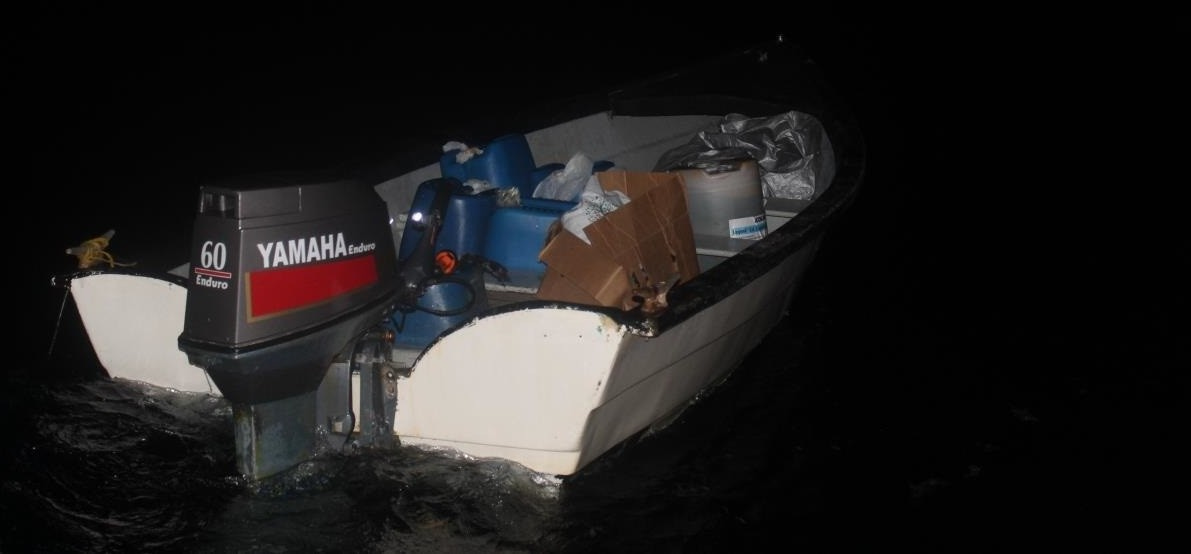
Celebrity endorsements are a fixture in Western culture. Ronald Reagan endorsed Chesterfield cigarettes, while some actual medical doctors proclaimed the health benefits of smoking in general. The were paid to say so.
Amusing to me is when villains are doing the endorsing. Their opinions carry greater weight because no one is paying for them. They are speaking strictly as professionals, like the Taliban and the fleets of machine gun-mounting Toyota pick-up trucks.
Another example: Yamaha. Good outboard motor, right? But you know it’s really true when Abu Sahar says so. Sahar may not be his really name, of course. He is a criminal, after all.
Anyway, this Sahar guy “packages” outboards and inflatables for refugees wanting to be smuggled from continental Europe into the United Kingdom. He has several covert warehouses in Germany. He charges about $15,800 for a boat and motor, lifejackets included. As part of the service, he will deliver them strategic locations on the French coast.
Speaking to an undercover journalist from the BBC, Sahar rated outboard motor brands, saying he “loves” Mercury but he loves another motor even more. “If there is Yamaha, I prefer Yamaha,” Sahar was quoted as saying.
Sorry, Brunswick. That’s gotta hurt. Especially after Loose Cannon reported last January that the Houthi rebels of Yemen had been using off-the-shelf Simrad Halo24 dome radar to target shipping in the Red Sea with missiles and exploding drones.
Simrad is now owned by Brunswick Corp., a $6,62 billion Fortune 500 company that absolutely dominates the small-craft market and whose subsidiaries include Simrad and Mercury. Brunswick never did respond to a request for comment even as Houthi targeting teams bedeviled the U.S. Navy from over the horizon.
Not bad for a product you can buy from Defender for about three grand.
In its case, Yamaha felt that it needed to respond when my friends at Marine Industry News in the U.K. asked what the Japanese builder thought of how its products were being used to facilitate illegal migration.
No good, very, very bad, Yamaha’s spokesman said, specifically:
“This latest report from BBC News is wholly concerning, and we do not condone the use of Yamaha outboards in this way. We condemn people trafficking in all of its forms and we stand with the victims of these horrendous crimes whole-heartedly.”
Again, Brunswick declined to respond to a request for comment. But why would it, having been assigned also-ran status in the bad-guy sweeps?
Attemps at humor aside, crossing the English Channel on an overcrowded inflatable is not something to be undertaken lightly. According to Marine Industry News, more than than 25,000 people have crossed the channel so far this year and more than 50 have died—facts that underscore the importance of a reliable outboard motor.
In the Western Hemisphere to direction of migration is south to north, which sometimes involves going east first. Dozens of attempts are made each year to ferry migrants from the Dominican Republic to Puerto Rico. There they will acquire some sort of ID that let’s them fly to the U.S.
Yolas are the ubiquitous Dominican dory used by people-smugglers taking passengers across the Mona Passage. Very near 100 percent are powered by Yamaha.
That doesn’t mean as much as one might think. The fact is nearly 100 percent of the outboards in the Dominican Republic are Yamahas to begin with, and that is true to a similar degree throughout coastal Latin America, where the accent, by the way, is on the second syllable—YaMAha.





Speaking of people crossing the North Sea on small boats:
I have a Dutch friend. One day we were exchanging stories as sailors often do over a couple of adult beverages. He told me about being a teenager and having a sailboat he built himself. He and his friend decided to sail it from Holland to England without much of a plan (as teens tend to do). Obviously being stupid teens, they didn't tell anyone about their plan and at the time the UK was not a part of the EU - not to worry, they didn't have passports anyway.
They safely made it across the North Sea and landed on a beach. They walked about for a few days, camped, and then sailed home.
He said they would have stayed longer but the stores wouldn't take their money and they ran out of food.
The trip back was enough to convince them to never do it again :)
This same guy also had a converted VW Bug that they added a ski-rope pole to. They used it on the towpaths so they could waterski on the canals. Of course, they didn't have driving licenses.
He later would become a policeman and had a long career in the Dutch Secret Service.
I think it's important to note that the preferred Yamahas in the Carib are usually the two stroke models:
https://global.yamaha-motor.com/business/outboards/products/2st/